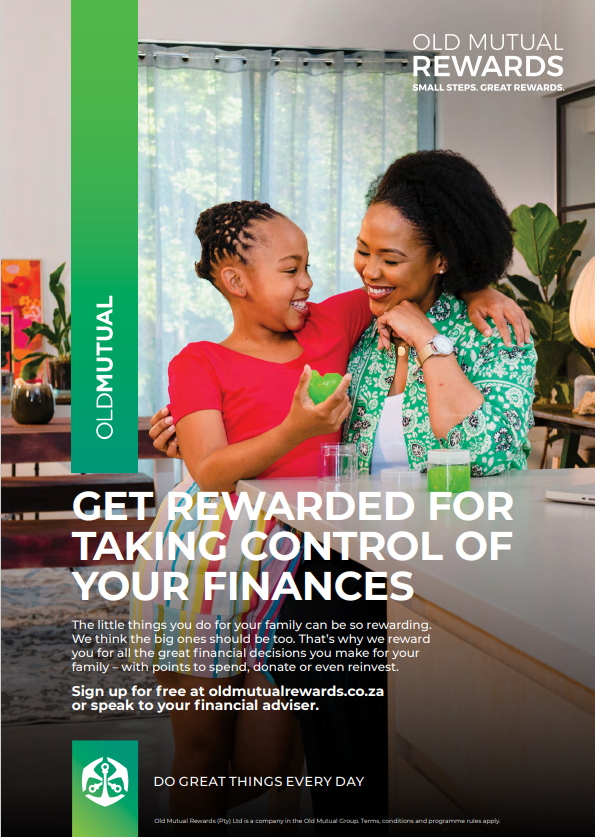
Lizl Budhram, Head of Advice at Old Mutual Personal Finance
Millions of South Africans are trying to find ways to juggle a shrinking pocket with increasing expenses. Although the Department of Mineral Resources and Energy backtracked on the petrol price increase, dropping it from an 81-cent increase to 75 cents in December, the new price still breaches the R20 mark at R20.07 a litre (Inland price differ from Coastal provinces).
The last five years have been rough in terms of inflation and rising living costs. The Old Mutual Savings and Investment Monitor (OMSIM) 2021 reveals that 87% of respondents said Covid made them change the way they think about and manage their finances.
A Household Affordability Index by the Pietermaritzburg Economic Justice & Dignity group showed that the average Household Food Basket increased by R98.08 (2.3%) month-on-month, and R400.83 (10.2%) year-on-year. In October 2021, the average Household Food Basket cost was R4,317.56 and the group is predicting further food price increases in the year ahead.
In the face of these rising costs and what seems to be a never-ending onslaught of new Covid variants, many are quietly revising their finances and buckling down for a rough year in 2022.
Below is a few tips that advisers can share with clients going into the new year:
- Budget, budget, budget –22seven is a budgeting app, brought to you by Old Mutual, helps track expenses and set up investments. The app can help clients to be mindful of their spending patterns and identify expenses they can consider cutting. Remind your clients that a budget is a living document that should constantly be revised and not a static document.
- Kill the debt – the cost of borrowing is likely to get more expensive after the recent interest hike taking the prime lending rate to 7.25% with the South African Reserve Bank signalling more interest rate hikes in the next year. If your client has access to any money they can channel into paying off or reducing debt, encourage them to do so. You can help them draw up a strategy to pay off their debt, starting with the highest interest-bearing debt first.
- Polyjobbing –According to OMSIM 2021, 47% of people now have more than one source of income and 44% are learning something new or upskilling at home. Hobbies can be turned into income streams or clients can upskill themselves so that they can move into higher paying positions. Consulting positions have become more widely available and small to medium businesses are often looking for business mentors.
- Reduce taxable income with a retirement annuity – Clients can contribute up to 27.5% of their total annual income to a retirement fund (the annual tax-deductible contribution is capped at R350 000) and get a tax refund or reduction. Help your clients calculate how much they have already contributed to their retirement annuity (RA) and other retirement funds – including the contributions for January and February and then work out how much more they can “top up” to receive the maximum tax benefit. These contributions will reduce your client’s taxable income and any refund that your client receives from SARS as a result can be channelled into further savings.
- Loyalty programmes – 69% of the OMSIM 2021 respondents took advantage of points or rewards accumulated via loyalty programmes in the last year. Remind your clients to check who the programme’s rewards partners are and change their shopping behaviour so that they earn more points. It also helps to be aware of time limits as some programmes require you to earn a certain number of points each quarter to reach a particular rewards level.
A bit of foresight and careful planning with your clients can mean the difference between them having the means to financially survive the year ahead and a “mean” year where financial stress and worries are the order of the day.


